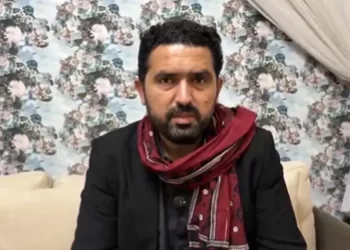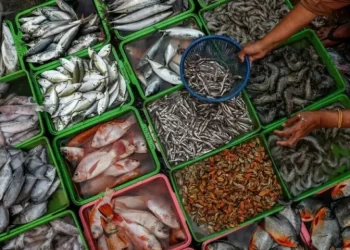One of India’s leading opposition figures resigned his post as New Delhi’s chief minister on Tuesday, days after he emerged from prison on bail in a bribery case.
Arvind Kejriwal, a fierce critic of Prime Minister Narendra Modi, was arrested in March on charges of receiving bribes from a liquor distributor. Kejriwal has consistently denied the accusations and called them a political conspiracy.
Opposition parties widely condemned Kejriwal’s arrest politically motivated, accusing Modi’s government of misusing federal investigation agencies to harass and weaken its political opponents.
They pointed to raids, arrests and corruption investigations into key opposition figures in the months before the elections.
On Tuesday, Kejriwal’s Aam Admi Party (AAP) chose his ally Atishi as his successor. A close aide to Kejriwal, she uses one name.
Atishi, 43, holds key finance, education, and women’s and children’s welfare portfolios.
Kejriwal handed his resignation to Delhi’s Lt. Gov. VK Saxena after serving the post for more than nine years.
He said he would only return to the post if people voted for him in the upcoming Delhi assembly election. He demanded that the elections, scheduled for February next year, be moved up to November.
India’s Supreme Court ordered his release on bail on Friday, saying his trial would likely take time, but said he would not be permitted to meet witnesses in the case or visit his office, and the capital’s governor must review some of his decisions as chief minister.
The government accused Kejriwal’s party and ministers of accepting 1 billion rupees ($12 million) in bribes from a liquor distributor nearly two years ago in return for changing a liquor sales policy in its favor.
Two key ministers in Kejriwal’s government, Manish Sisodia and Sanjay Singh, were also arrested. They were freed on bail earlier.
Modi’s Bharatiya Janata Party (BJP) reminded Kejriwal’s jubilant supporters that their leader was out on bail and not acquitted. The party demanded Kejriwal’s resignation immediately after his arrest.
Kejriwal’s party came to office riding the crest of an anti-corruption wave. The party’s symbol – a broom – and its promise to sweep the administration of graft struck a chord with New Delhi’s residents, fed up with runaway inflation and slow economic growth.
“Kejriwal is a much-diminished politician today. The resignation gambit is a desperate attempt to cut his losses and, hopefully, rediscover some of the old mojo,” wrote R. Jagannathan, a political analyst, in a newspaper article on Monday.
Kejriwal’s party is a part of a broad alliance of opposition parties called INDIA and was the primary challenger to Modi’s BJP in June’s elections. Modi’s BJP failed to win a majority of its own, but it formed a government with the help of allies.
Associated Press








